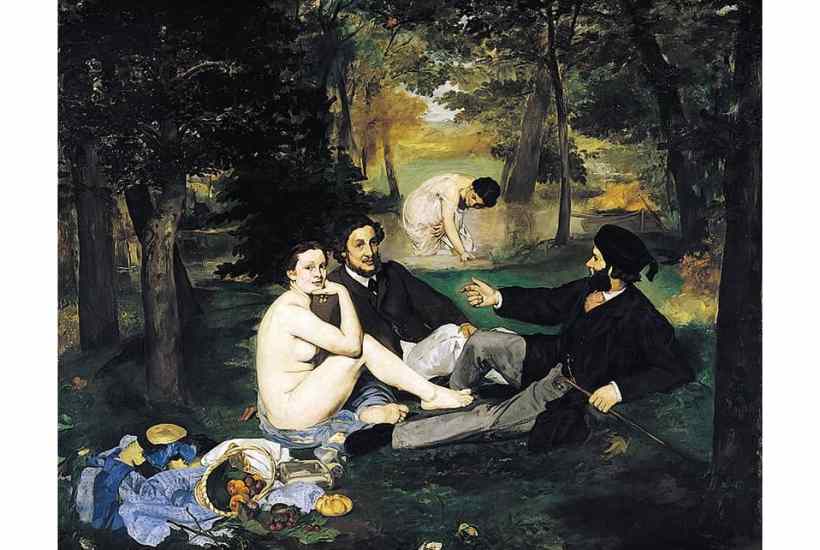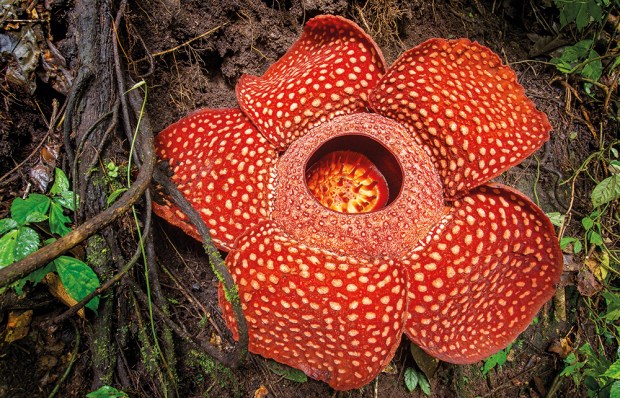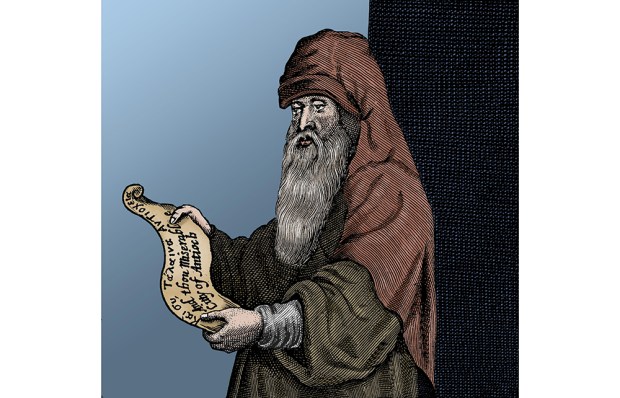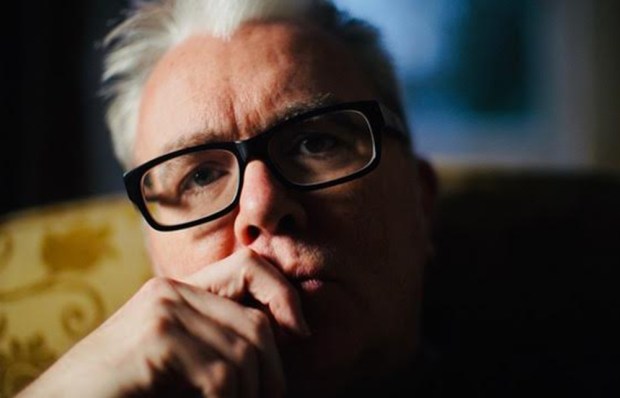‘Astonish me!’ was the celebrated demand that the impresario Sergei Diaghilev made of Jean Cocteau when he was devising Erik Satie’s ballet Parade. Dominic Dromgoole has taken it as the title for a collection of essays on
a series of seismic first nights, ranging across different public art forms. It is a celebration of the artistic achievements that overcame the odds to change the story of culture, and whose effects rippled out to change the world.
The author is a distinguished theatre director, and his focus is on performance. He is at pains to reject the notion of the solitary artist and argues that, from the dawn of history, the finest art has been communal. He notes how long-held theories of cave painting as the work of isolated individuals have been replaced by a belief in their function as backdrops to ‘shamanistic hoolies’. This is the artistic tradition to which he adheres, and which he honours in the book.
So the only visual artists to be included, Michelangelo and Manet, earn their places as much for the conditions and controversies in which their respective works – the statue of David and ‘Déjeuner sur l’herbe’ – were first shown as for their intrinsic value. Dromgoole offers neat sketches of the cultural, religious and political ferment of Renaissance Florence (although he wrongly asserts that Michelangelo shared his youth in the Medici household with Savonarola, who was 23 years his senior) and the cultural shibboleths of Napoleon III’s Paris that led Manet to exhibit his groundbreaking canvas at the Salon des Refusés.
The only exclusively literary figure under discussion, the poet Anna Akhmatova, appears to be an anomaly until one realises that the nub of the essay is the first performance of her poetic cycle Requiem, when she and her friend Lydia Chukovskaya wrote down the words of the poems, memorised them and burnt them, for fear of discovery under the brutal Soviet regime.
Dromgoole’s accounts of the musical and theatrical performances which form the bulk of the book are rich in anecdotes and often controversial judgments. The key problem is the lack of any guiding principle to the writing other than the author’s enthusiasm. So the essay on Thespis, the legendary founder of Greek drama, sits between those on Michelangelo’s David and Ravi Shankar, and the essay on Monteverdi’s L’Orfeo between those on Okuni, the originator of Kabuki theatre, and John Lydon, a.k.a. Johnny Rotten, making the collection something of a ragbag.
The presence of Lydon among such cultural luminaries attests to the eclecticism of Dromgoole’s tastes, but it begs questions about his subtitle, ‘First Nights that Changed the World’. That description might loosely apply to Thespis, Monteverdi and Akhenaten (although, even allowing for his architectural projects, the world’s first monotheist fits strangely here), but it is a gross overstatement in other cases. To take just one example, the book’s opening essay charts the brief career of Lorraine Hansberry, whose A Raisin in the Sun in 1959 was the first play by a black woman to open on Broadway. But the next such play, Ntozake Shange’s for coloured girls who have considered suicide, didn’t appear for another 17 years, so the first wasn’t exactly world-changing. Moreover, Dromgoole notes that Hansberry was influenced by the demotic poetry of Sean O’Casey and J.M. Synge. Surely Synge, whose finer work The Playboy of the Western World provoked riots on its first night at the Abbey Theatre, would have been a more appropriate candidate for inclusion?
In addition to shaping the book by his enthusiasms, Dromgoole peppers it with his experiences. He amusingly relates the delay over the erection of the statue of David in the Piazza della Signoria to that on the opening night of one of his own productions in Florence, ‘until the audience warmed up’. He is rightly proud of the Globe to Globe festival he programmed in 2012, when 37 inter-national companies presented the entire Shakespeare canon in a mere six weeks, although whether that logistical feat justifies its inclusion among these world-changing first nights is a moot point. Even more questionable is his comparison of the work he produced during his tenure at London’s Bush theatre with that which led to the invention of opera: ‘We were an innovation centre to keep the wider industry fresh. A similar spirit pertained in Mantua.’
Most telling is his account of his visit to see his daughter in a student production of Alfred Jarry’s schoolboy squib Ubu Roi, at the end of which, elated by the audience reaction, the director ‘took off his clothes and started vigorously masturbating’. As Arthur Symons said of the play’s original production: ‘In our search for sensation, we have exhausted sensation.’ There is much to be said for the solitary artist after all.
Got something to add? Join the discussion and comment below.
Get 10 issues for just $10
Subscribe to The Spectator Australia today for the next 10 magazine issues, plus full online access, for just $10.
You might disagree with half of it, but you’ll enjoy reading all of it. Try your first month for free, then just $2 a week for the remainder of your first year.














Comments
Don't miss out
Join the conversation with other Spectator Australia readers. Subscribe to leave a comment.
SUBSCRIBEAlready a subscriber? Log in